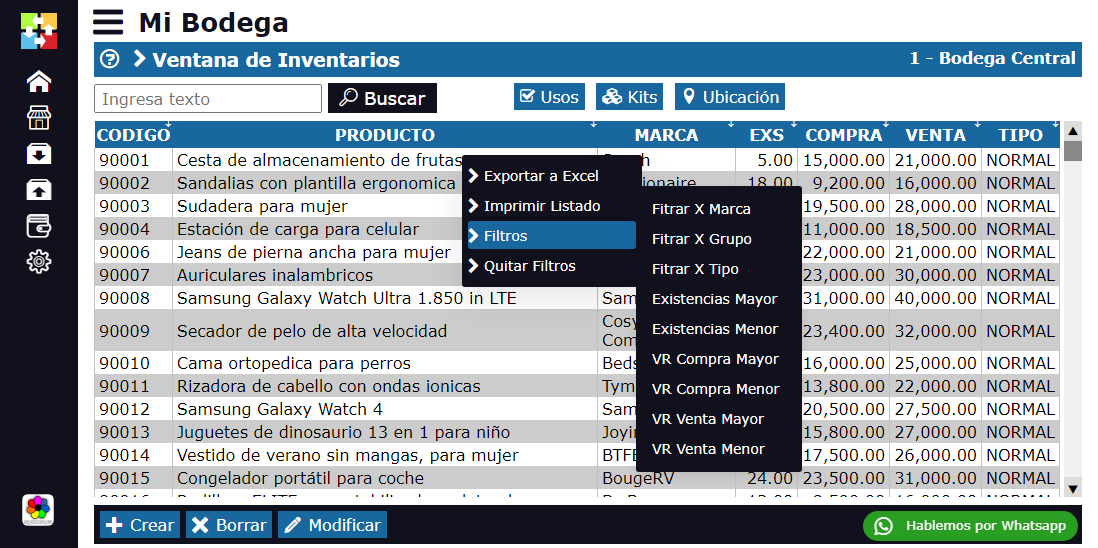Accounting Dictionary - Letter G

- GAAP (Generally Accepted Accounting Principles): A set of rules and guidelines that accountants and businesses follow when preparing financial statements.
- Gain: An increase in value or profit, often used in financial reporting and analysis.
- General ledger: A book or computer file that contains all of a company's financial accounts and transactions.
- Gross profit: The difference between a company's revenue and its cost of goods sold.
- Goodwill: An intangible asset that represents the value of a company's reputation, brand, and other non-physical assets.
- Going concern: A company that is expected to continue operating for the foreseeable future.
- Grant: A payment or award made by a government or other organization to support a specific project or activity.
- Gross income: The total amount of income earned by a company or individual before taxes and other deductions.
- Gross margin: The difference between a company's revenue and its cost of goods sold, expressed as a percentage.
- Gross revenue: The total amount of revenue earned by a company before any deductions or adjustments.
- GAAS (Generally Accepted Auditing Standards): A set of rules and guidelines that auditors follow when conducting audits.
- Gearing: The ratio of a company's debt to its equity, often used in financial reporting and analysis.
- General journal: A book or computer file that contains all of a company's financial transactions.
- General partner: A partner in a partnership who has unlimited personal liability for the partnership's debts and obligations.
- Gift tax: A tax on gifts made by one person to another, often used in estate planning and tax planning.
- Glutting: The act of selling a large quantity of goods or assets at a low price, often used in financial reporting and analysis.
- Golden parachute: A payment or benefit made to an executive or employee in the event of a change in control or termination.
- Goods in transit: Goods that are being transported from one location to another, often used in inventory management and supply chain management.
- Grantor: A person or organization that makes a grant or award to support a specific project or activity.
- Gratuity: A payment or benefit made to an employee or executive in addition to their regular compensation.
- Green accounting: A type of accounting that focuses on the environmental and social impacts of a company's operations.
- Gross earnings: The total amount of earnings earned by a company or individual before taxes and other deductions.
- Gross loss: A loss that is incurred by a company or individual, often used in financial reporting and analysis.
- Gross national product (GNP): A measure of a country's economic output, often used in macroeconomic analysis.
- Gross profit margin: The difference between a company's revenue and its cost of goods sold, expressed as a percentage.
- Gross receipts: The total amount of revenue earned by a company before any deductions or adjustments.
- Guarantor: A person or organization that guarantees a loan or other debt, often used in financial reporting and risk management.
- Guaranty: A promise or agreement to guarantee a loan or other debt, often used in financial reporting and risk management.
- Guideline company method: A method of valuing a company by comparing it to similar companies in the same industry.
- Garnishment: A court order that requires an employer to withhold a portion of an employee's wages to pay a debt or other obligation.
- Gifting: The act of giving a gift or making a donation, often used in estate planning and tax planning.
- Globalization: The process of integrating economies and cultures around the world, often used in international business and finance.
- Goal congruence: The alignment of an individual's or organization's goals with those of the company or organization.
- Going concern value: The value of a company as a going concern, often used in financial reporting and analysis.
- Golden handcuffs: A payment or benefit made to an executive or employee to retain their services, often used in financial reporting and analysis.
- Goodwill impairment: A decrease in the value of a company's goodwill, often used in financial reporting and analysis.
- Graduated tax: A tax that increases as the taxpayer's income or wealth increases, often used in tax planning and policy.
- Grandfather clause: A provision in a law or contract that exempts certain individuals or organizations from its requirements.
- Grants-in-aid: Payments or awards made by a government or other organization to support a specific project or activity.
- Greenmail: A payment or benefit made to an investor or shareholder to induce them to sell their shares, often used in financial reporting and analysis.
- Grey market: A market in which goods or assets are traded outside of official channels, often used in financial reporting and analysis.
- Gross estate: The total value of a person's assets at the time of their death, often used in estate planning and tax planning.
- Gross lease: A lease in which the lessee pays a fixed rent and the lessor is responsible for all expenses, often used in financial reporting and analysis.
- Gross profit percentage: The difference between a company's revenue and its cost of goods sold, expressed as a percentage.
- Gross sales: The total amount of revenue earned by a company before any deductions or adjustments.
- Group depreciation: A method of depreciating assets that are similar in nature and have similar useful lives.
- Growth rate: The rate at which a company's revenue, earnings, or other financial metrics are increasing, often used in financial reporting and analysis.
- Guarantee: A promise or agreement to guarantee a loan or other debt, often used in financial reporting and risk management.
- Guaranteed investment contract (GIC): A type of investment contract that guarantees a fixed return, often used in financial reporting and analysis.
- Guaranteed payment: A payment that is guaranteed by a third party, often used in financial reporting and risk management.






